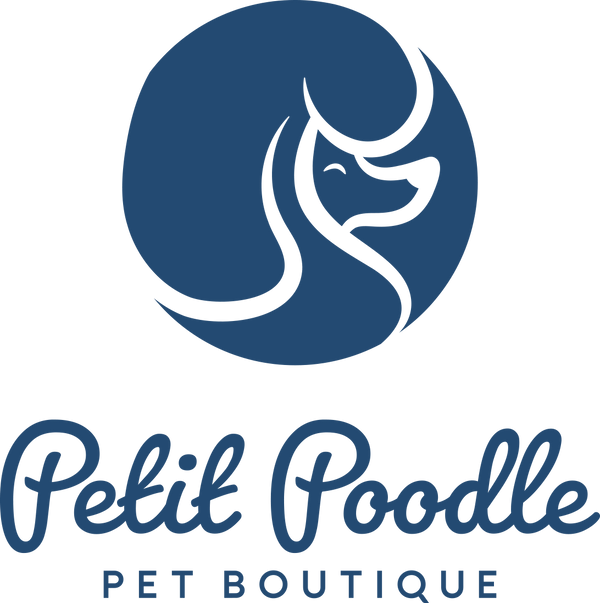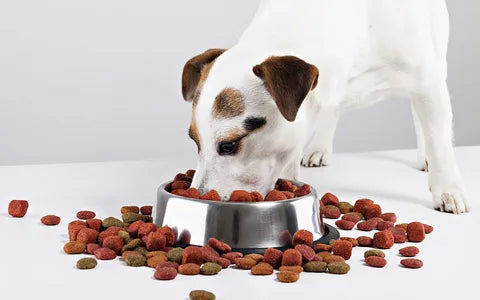Feeding your dog is one of the most important things you do as a pet parent. But with so many options available, choosing the right food can feel overwhelming especially when you start hearing terms like “grain-free” and “limited-ingredient.” Are these diets better? And more importantly, does your dog actually need them?
Let’s break down what these terms mean, who they’re really for, and how to tell if your dog could benefit from switching to one of these special diets.
What Is Grain-Free Dog Food?
Grain-free dog food is made without common grains like wheat, corn, rice, barley, or oats. Instead, it uses alternative carbohydrate sources such as sweet potatoes, peas, or lentils. The idea behind grain-free diets is to reduce the risk of food sensitivities and give dogs a diet that’s closer to what their ancestors may have eaten.
However, grain-free doesn’t mean carb-free, and not all grain-free diets are automatically better. In fact, unless your dog has a known issue with grains, grain-inclusive foods can be just as healthy.
What Is Limited-Ingredient Dog Food?
Limited-ingredient Dog Food is designed to reduce the number of ingredients your dog is exposed to. These foods typically contain:
- A single protein source (like turkey, salmon, or lamb)
- One or two simple carbohydrate sources
- Fewer additives, fillers, or preservatives
These formulas are often used for dogs with food allergies, sensitivities, or digestive issues, as they make it easier to avoid triggers and pinpoint problem ingredients.
Reasons Your Dog Might Need a Grain-Free or Limited-Ingredient Diet
Not all dogs need special diets, but in certain cases, they can be extremely helpful. Here are some signs and situations where your pup might benefit:
1. Food Allergies or Sensitivities
If your dog suffers from itchy skin, chronic ear infections, excessive licking, or frequent upset stomachs, a food sensitivity could be the cause. In these cases, a limited-ingredient diet helps you eliminate common allergens and narrow down what’s causing the problem.
Common culprits include:
- Beef
- Chicken
- Dairy
- Wheat
- Soy
- Corn
A grain-free or novel protein formula (like duck or venison) can sometimes help relieve these symptoms.
2. Digestive Issues
Some dogs have sensitive stomachs and may struggle with certain grains or highly processed foods. Signs of this include:
- Loose stools
- Frequent gas
- Bloating
- Vomiting
Switching to a simpler, more digestible diet like grain-free or limited-ingredient food may ease these symptoms and support better digestion.
3. Chronic Skin Conditions
If your dog is constantly scratching, has flaky skin, or keeps getting hot spots, their diet could be contributing to skin inflammation. Limited-ingredient or grain-free foods that contain omega-3 fatty acids, high-quality proteins, and minimal fillers can help support healthier skin and a shinier coat.
4. You’re Doing an Elimination Diet
Veterinarians sometimes recommend an elimination diet to identify food allergies. This involves feeding your dog a limited-ingredient food with a novel protein for several weeks and slowly reintroducing other ingredients. These diets are typically grain-free to reduce potential allergens during the trial.
5. Specific Breed or Genetic Needs
Some breeds like retrievers, German shepherds, bulldogs, and poodles—are more prone to food allergies or skin conditions. In these cases, your vet may recommend a specialized diet tailored to their sensitivities.
What to Watch Out For?
While these special diets can be helpful, they’re not automatically better for every dog. In fact:
- Whole grains can be a healthy part of many dogs' diets.
- Poorly formulated grain-free foods may lack essential nutrients.
- Always consult your veterinarian before switching your dog’s food, especially if you’re concerned about allergies or health issues.
Final Thoughts
Grain-free and limited-ingredient diets aren’t just trendy—they can be a lifeline for dogs with allergies, stomach problems, or skin issues. But they’re not a one-size-fits-all solution.
The best diet for your dog is one that’s complete, balanced, and suited to their unique needs. If your pup is showing signs of discomfort, itching, or digestive trouble, it might be time to take a closer look at what’s in their bowl.
Need help choosing the right food for your dog?
Explore tips, product reviews, and expert guidance at Petit Poodle your trusted resource for all things dog health and nutrition.

